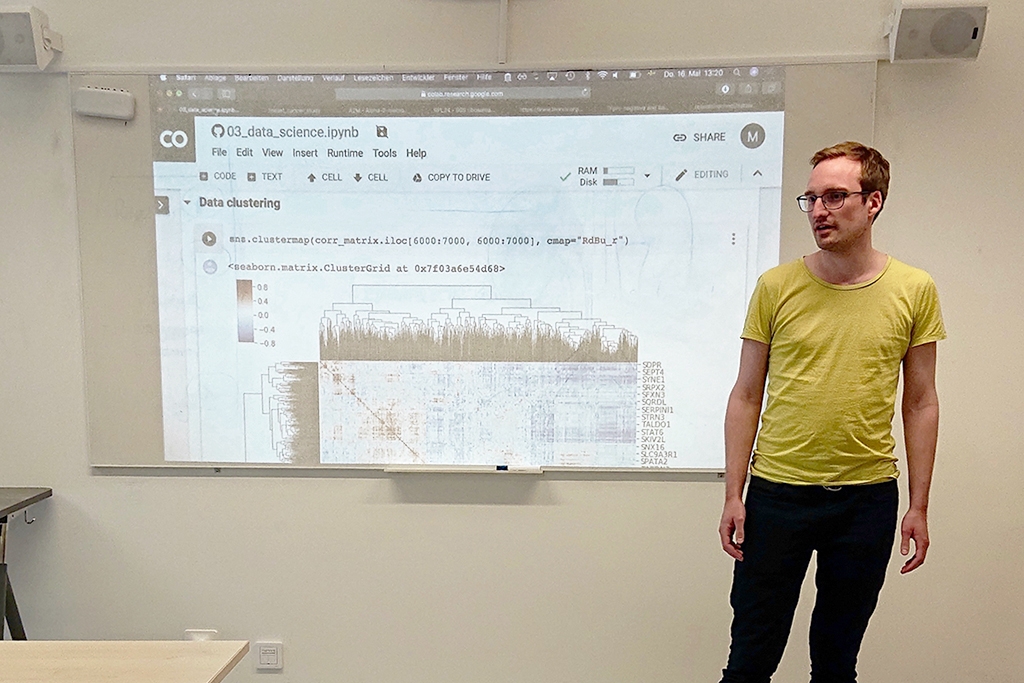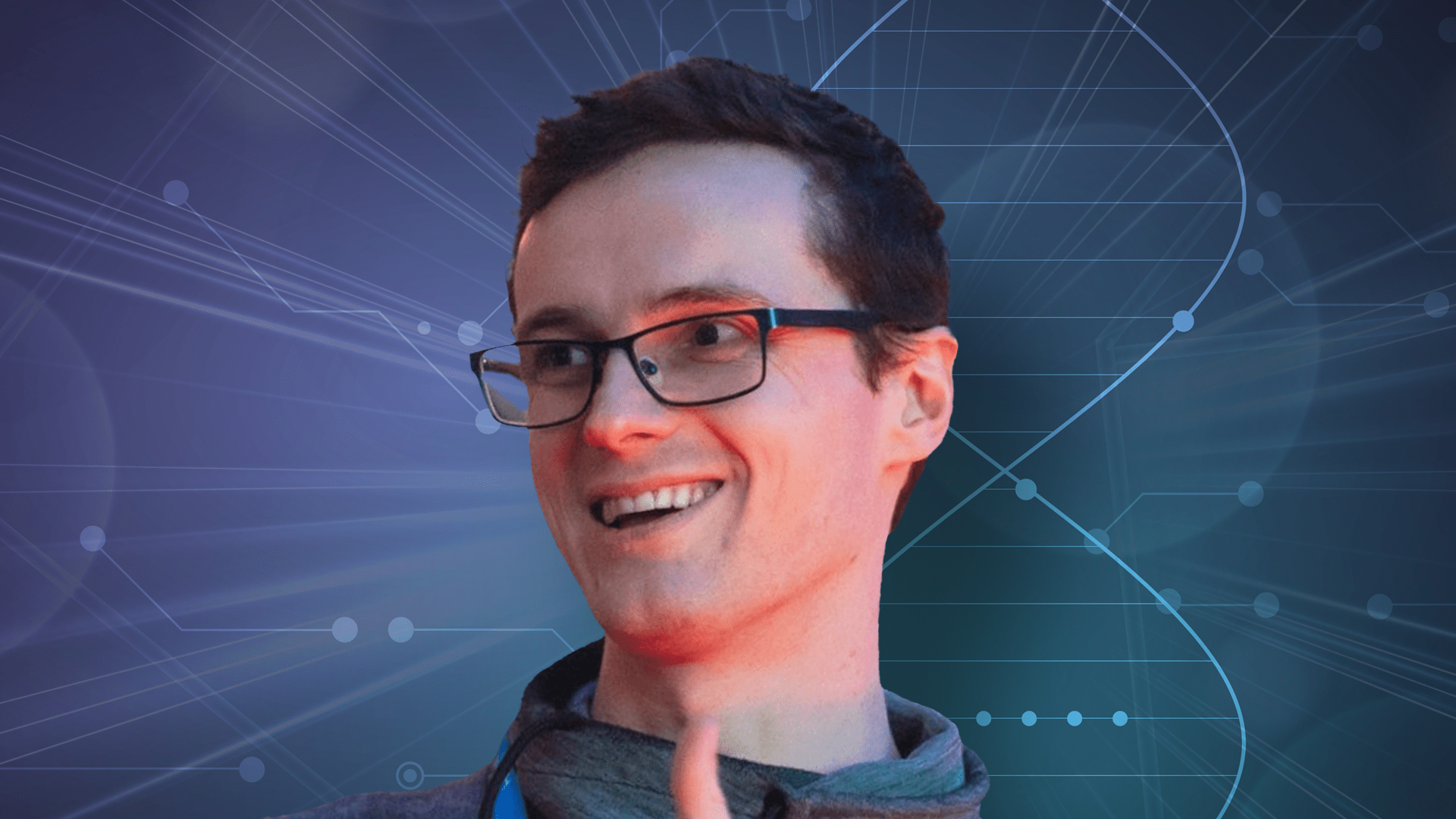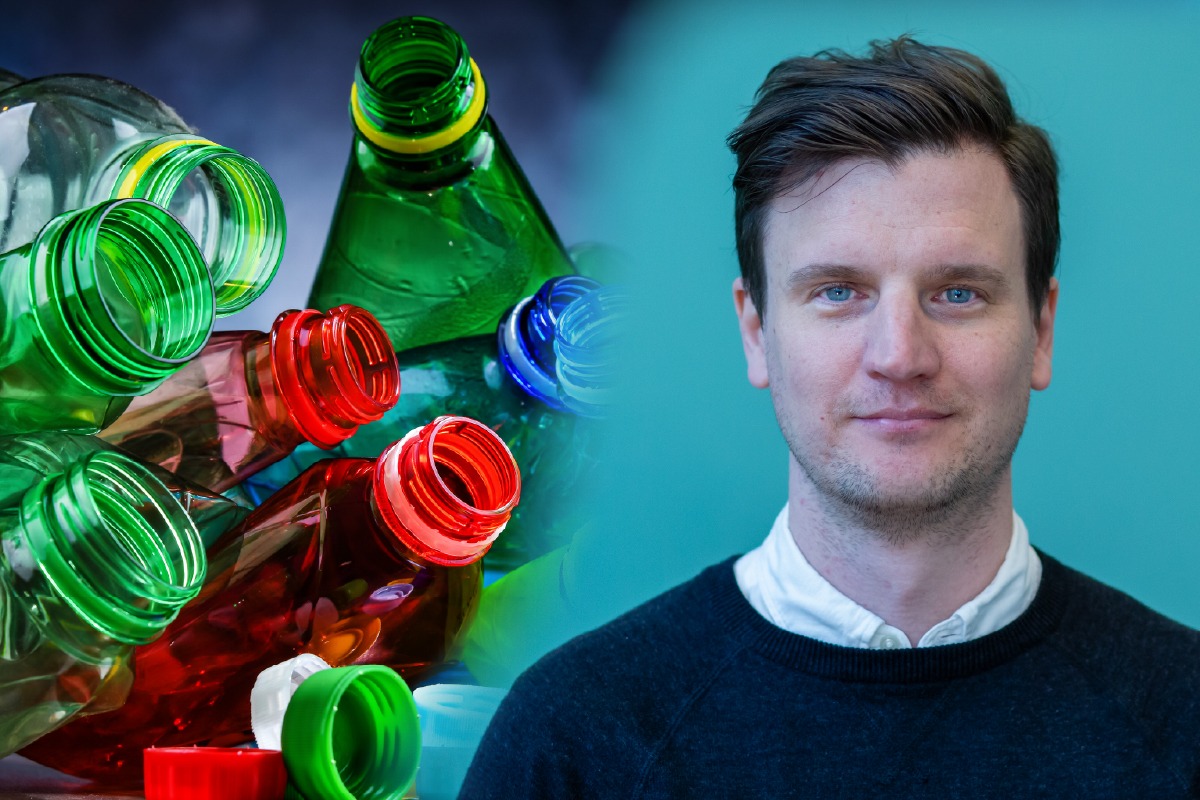SciLifeLab brings research to school
Sometimes cutting edge technology, found in SciLifeLab’s laboratories, is far away from high school classrooms. That is why Björn Einarsson, a science teacher from “Kungsholmens västra gymnasium”, decided to visit SciLifeLab and Janne Lehtiö’s group. He wanted to learn more about biotechnology and possibly find a way to bring some of it back to his students.
Matthias Stahl, a bioinformatician in Lehtiö’s group, had also noticed the gap and together with Björn they started planning the ResearchSchool initiative. First, SciLifeLab researchers Cecilia Engel Thomas, Maja Marklund and Rui Benfeitas visited the high school, talking about their daily research as well as introducing the students to a plethora of cutting edge technologies.
Then Diana, a student from the high school, also got to visit Janne Lehtiö’s laboratory where she met Fabio Socciarelli and Yanbo Pan who gave her an introduction to proteomics. She also got to see the importance of bioinformatics in today’s research.
“It is more than exciting to see and feel for the first time what science is. In such moments the students understand, why they are learning math or chemistry and for which purposes this knowledge can be used“, says Matthias Stahl.
In order to arouse the student’s interest in programming Matthias Stahl added a one-week hands-on Data Lab workshop to the program. In the end, many students lost their fear of programming while trying to dissect a recent SciLifeLab breast cancer proteomics study using the programming language Python.
“If you only teach the principles of informatics, it is unlikely to reach the students. You have to show them, how programming enables insights into a disease they all know“, explains Matthias Stahl.
Overall, The ResearchSchool initiative was a success and will be repeated in a few months.
“In my view it was a great success. With the research talks at school, the internship in our lab and teaching the students bioinformatics in the Data Lab, we could motivate a lot of pupils for science and biotechnology”, says Matthias about the project.





